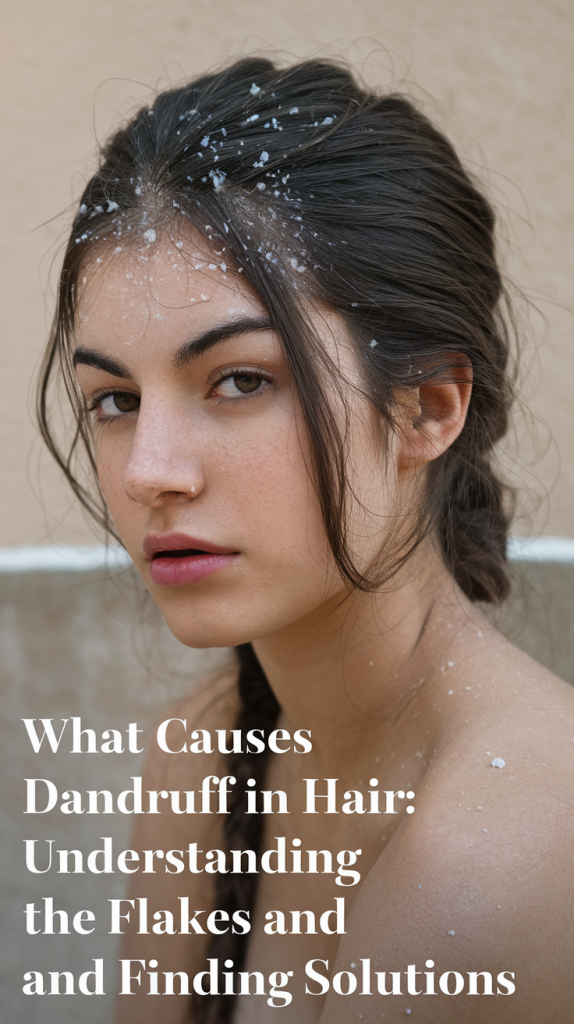What Causes Dandruff in Hair: Effective Solutions for a Healthy Scalp
Have you ever wondered why those pesky flakes keep returning no matter what you try? Dandruff is a common issue that affects millions of people worldwide. It’s more than just a cosmetic problem—it’s often a sign of an imbalance in your scalp’s health. As someone who has dealt with this frustrating condition, I can assure you that understanding its causes is the first step toward managing it. Let’s dive into the science behind dandruff and how to treat it effectively.
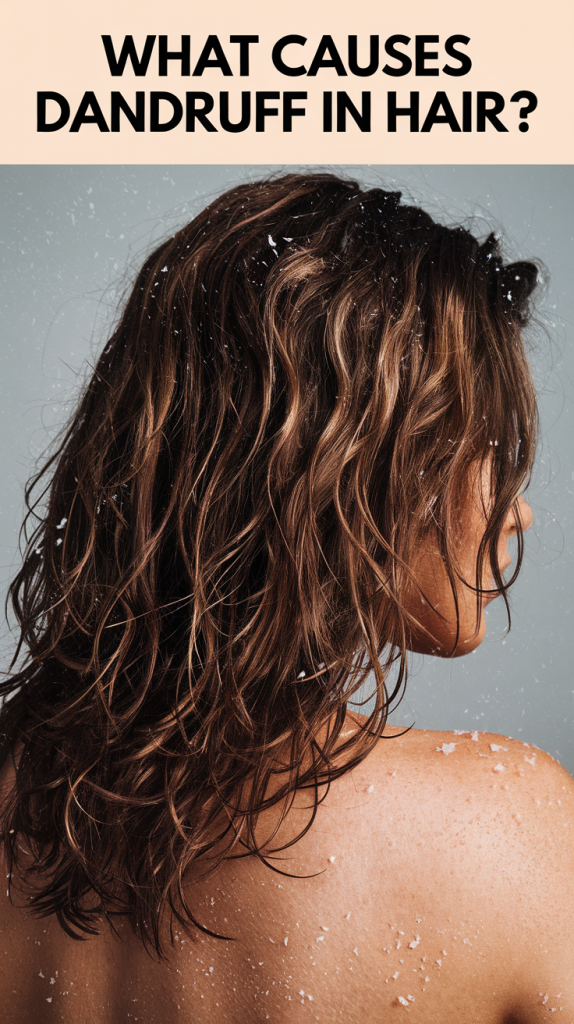
What Is Dandruff?
Dandruff refers to the excessive shedding of dead skin cells from the scalp. This shedding is usually triggered by an imbalance in scalp health, often accompanied by itchiness and irritation. While it’s not a serious medical condition, dandruff can affect self-esteem and overall well-being.
Common Causes of Dandruff
Seborrheic Dermatitis
Seborrheic dermatitis is a chronic condition that affects oily areas of the skin, including the scalp. It leads to redness, greasy patches, and yellowish flakes.
Malassezia Yeast Overgrowth
Malassezia, a naturally occurring yeast on the scalp, can overgrow when conditions are favorable. This overgrowth causes irritation and rapid skin cell turnover, leading to flakes.
Dry Skin
When your scalp is too dry, it can result in smaller, white flakes. This type of dandruff is often linked to environmental factors like cold weather and indoor heating.
Lack of moisture in the scalp.
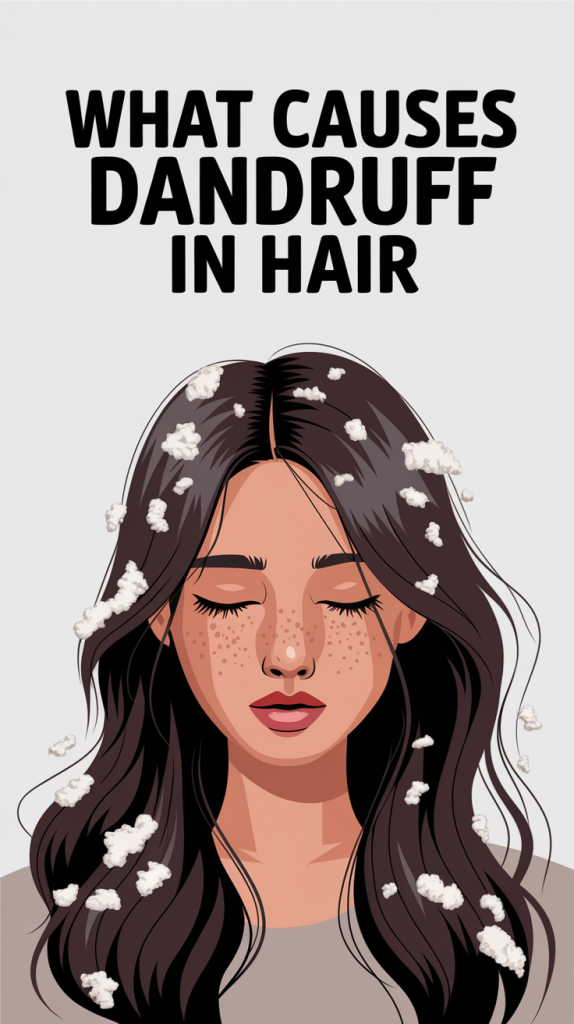
Types of Dandruff
Comparison of Dandruff Types
| Type | Key Symptoms | Primary Causes |
|---|---|---|
| Dry Skin Dandruff | Small, white flakes; itchy scalp | Cold weather, low humidity |
| Oily Skin Dandruff | Yellow, greasy flakes; inflamed scalp | Excess oil, fungal overgrowth |
| Fungal Dandruff | Persistent, large flakes; inflammation | Malassezia yeast imbalance |
| Product-Related Dandruff | Flaking after product use | Allergic reactions to harsh chemicals |
How to Manage and Treat Dandruff
Medicated Shampoos
Medicated shampoos are one of the most effective ways to control dandruff. Choose products based on active ingredients such as:
- Ketoconazole: Fights fungal infections.
- Pyrithione Zinc: Reduces yeast and bacteria.
- Salicylic Acid: Gently exfoliates dead skin cells.
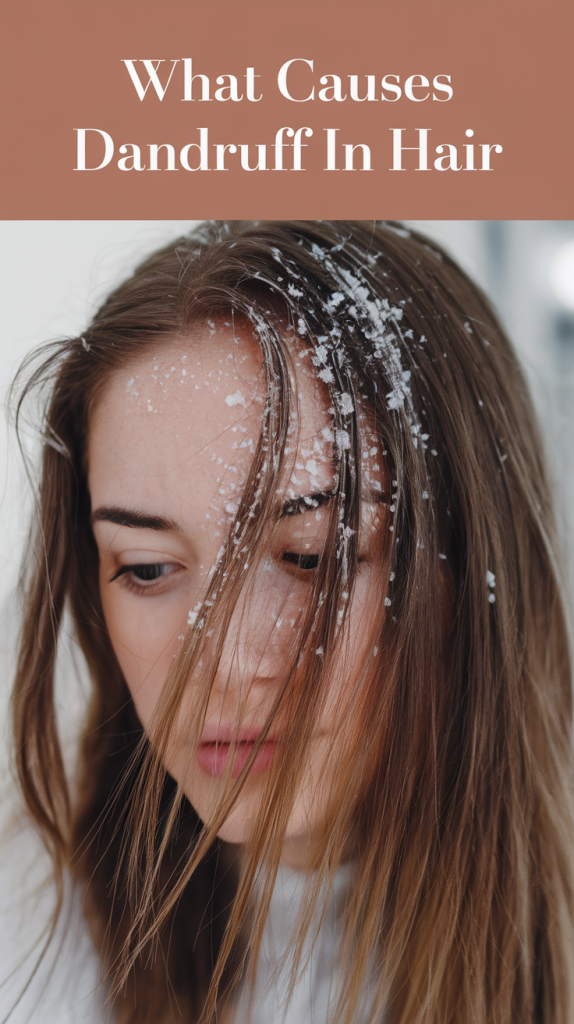
Recommended Medicated Shampoos
| Shampoo | Active Ingredient | Ideal For |
|---|---|---|
| Nizoral A-D | Ketoconazole | Fungal dandruff |
| Head & Shoulders Clinical | Selenium Sulfide | Severe dandruff |
| Neutrogena T/Sal | Salicylic Acid | Flaking due to dry scalp |
| Dove DermaCare | Pyrithione Zinc | Mild dandruff; daily use |
Natural Remedies
Natural remedies can complement medical treatments, particularly for mild cases.
- Tea Tree Oil: Known for its antifungal properties.
- Apple Cider Vinegar: Balances scalp pH and inhibits fungal growth.
- Aloe Vera: Hydrates and soothes irritation.
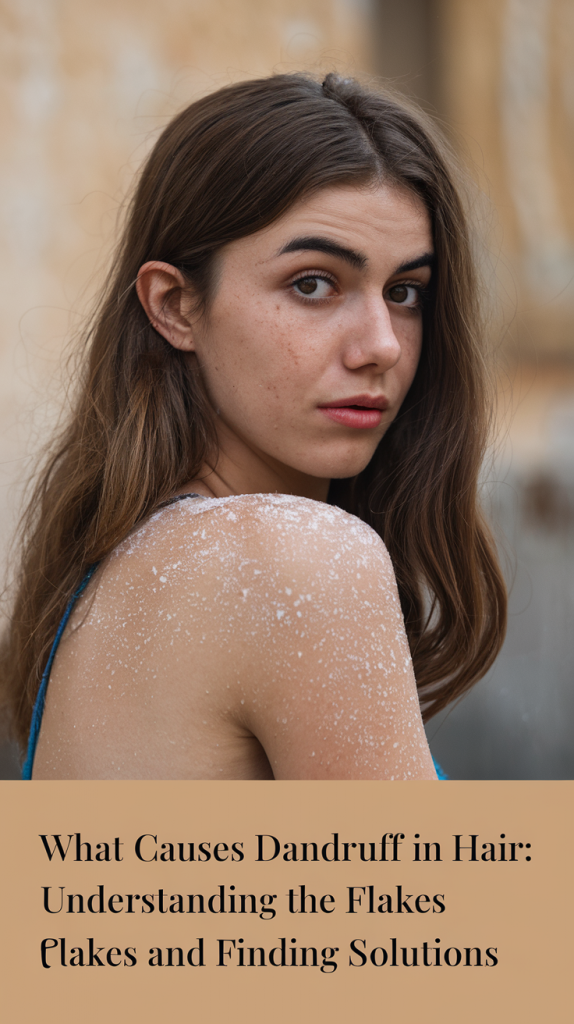
Lifestyle Adjustments
On my journey to managing dandruff, I noticed how lifestyle changes made a significant difference.
- Hydrate: Drink enough water to keep your scalp moisturized.
- Balanced Diet: Incorporate foods rich in zinc, omega-3 fatty acids, and vitamin B.
- Stress Management: Activities like yoga or meditation can reduce flare-ups triggered by stress.
Myths About Dandruff
| Myth | Reality |
|---|---|
| “Dandruff is caused by poor hygiene.” | Hygiene helps, but dandruff is linked to scalp conditions. |
| “Only dry hair gets dandruff.” | Oily scalps are just as prone to dandruff. |
| “Scratching helps remove flakes.” | Scratching worsens inflammation and damages the scalp. |
When to See a Dermatologist
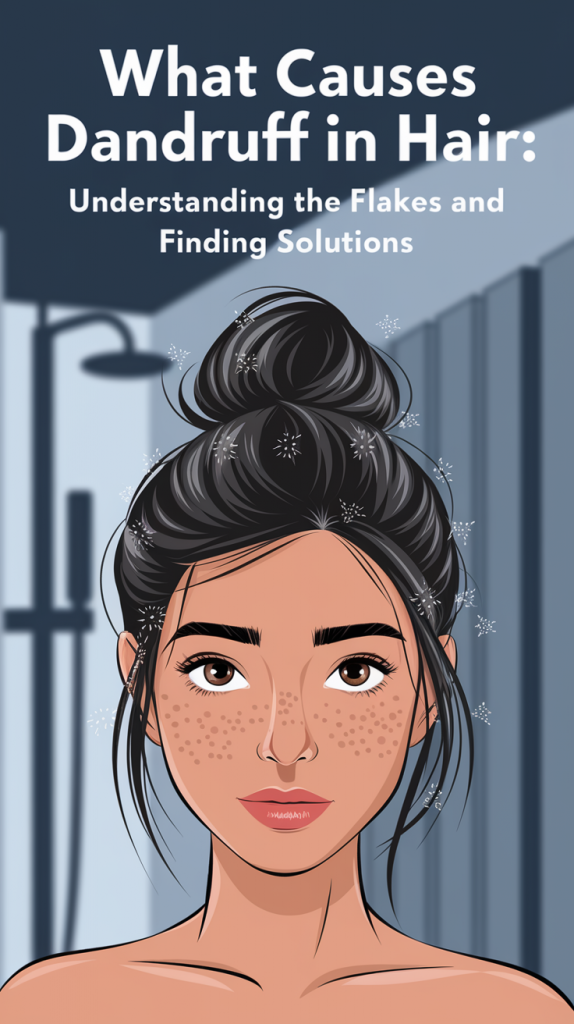
In some cases, dandruff may not respond to over-the-counter treatments. Persistent dandruff with severe redness, itching, or hair loss may indicate a more serious condition like psoriasis or eczema. A dermatologist can provide a proper diagnosis and advanced treatment options such as steroid creams or light therapy.
Emotional Impact of Dandruff
Dandruff isn’t just a physical condition—it can affect self-esteem and confidence. Personally, I’ve found that openly addressing it, coupled with a tailored treatment plan, can restore not just scalp health but peace of mind as well.
Conclusion
Dandruff may be common, but it’s also manageable with the right approach. Understanding its causes—whether it’s seborrheic dermatitis, yeast overgrowth, or lifestyle factors—empowers you to take control. A combination of medicated shampoos, natural remedies, and healthy habits can lead to a flake-free, confident you.
FAQs
1. Can dandruff cause hair loss?
Not directly. However, excessive scratching can weaken hair follicles, leading to shedding.
2. Is dandruff contagious?
No, dandruff is not contagious. It’s caused by scalp conditions.
3. Can diet affect dandruff?
Yes, a poor diet lacking in nutrients like zinc and omega-3 fatty acids can worsen scalp health.
4. Should I wash my hair daily if I have dandruff?
It depends on your scalp type. Oily scalps benefit from frequent washing, but dry scalps may not.
5. Are natural remedies enough to cure dandruff?
For mild cases, yes. Persistent dandruff usually requires medicated treatments.
6. Does stress make dandruff worse?
Absolutely. Stress can exacerbate dandruff by disrupting hormonal balance and immune responses.
